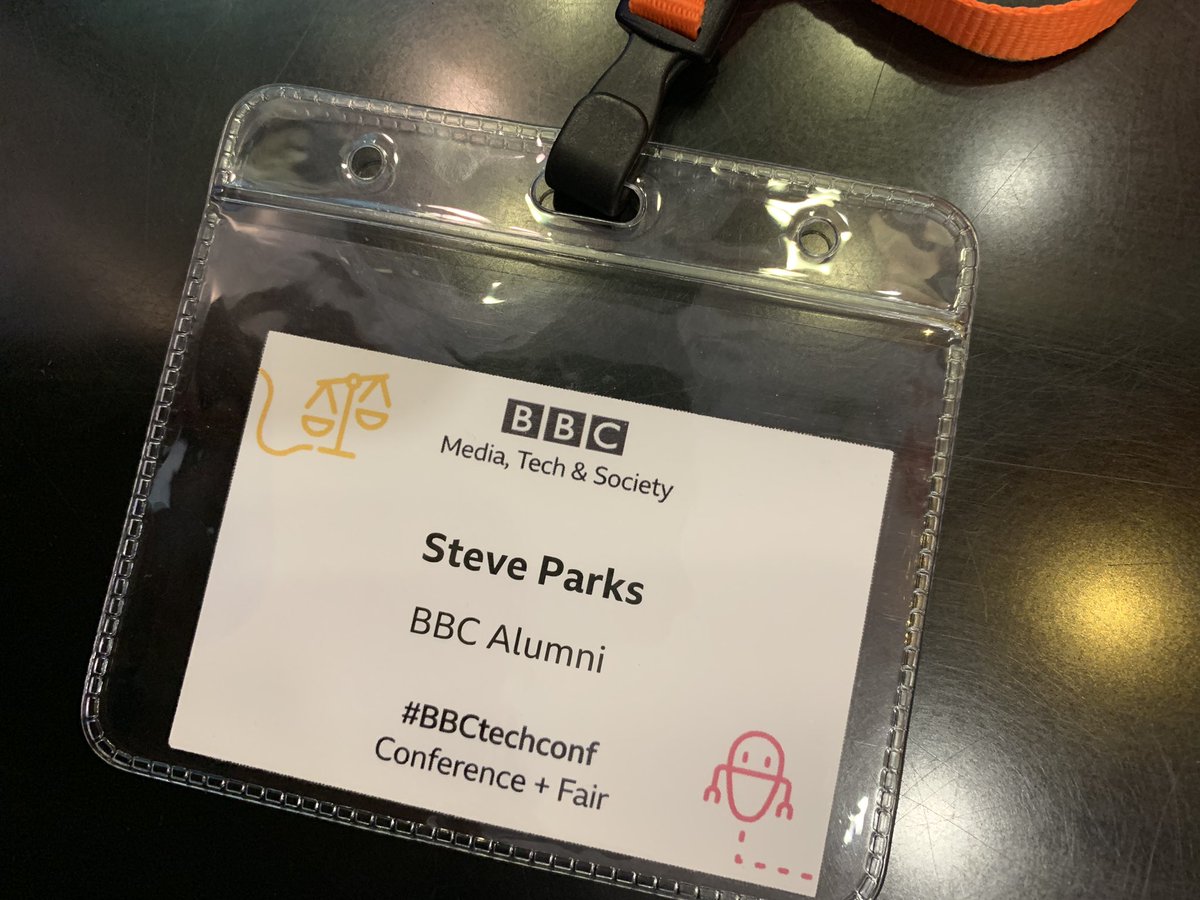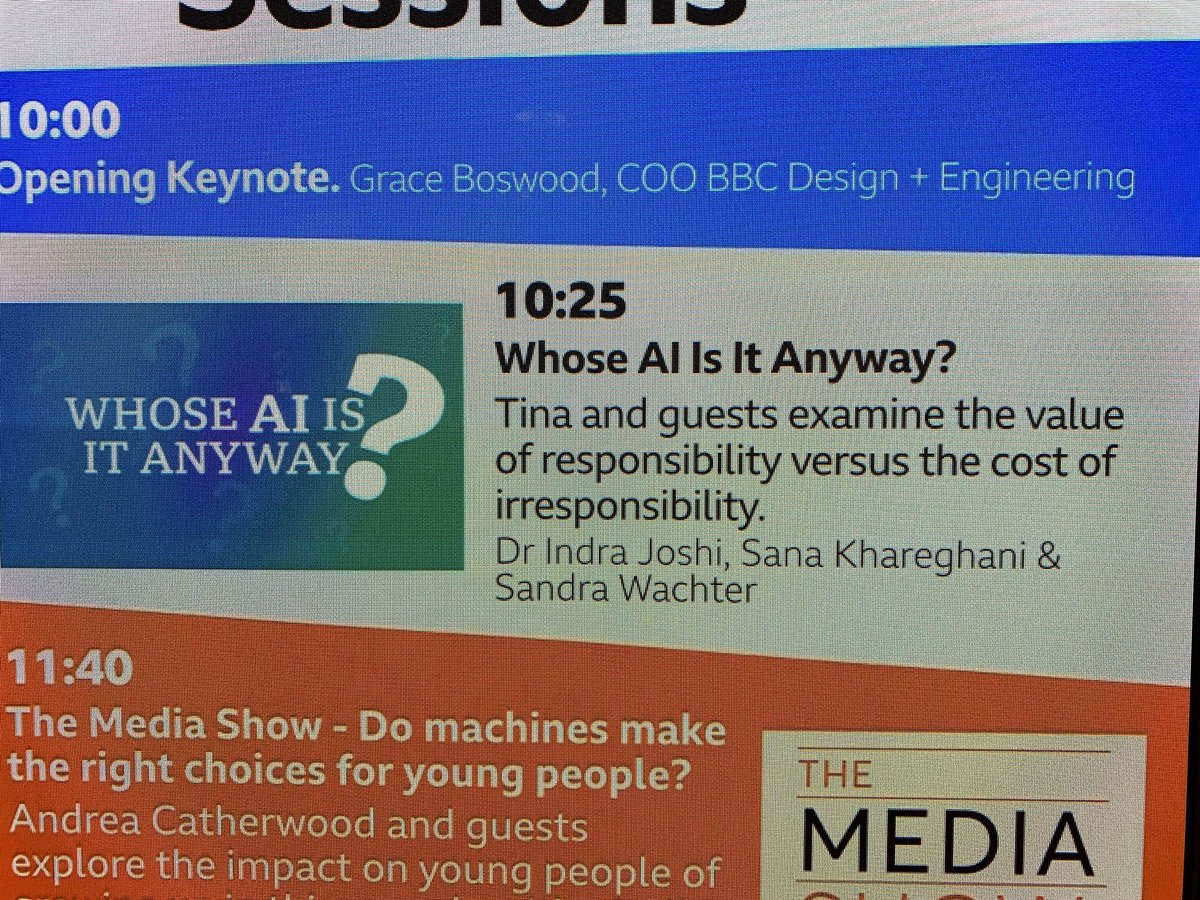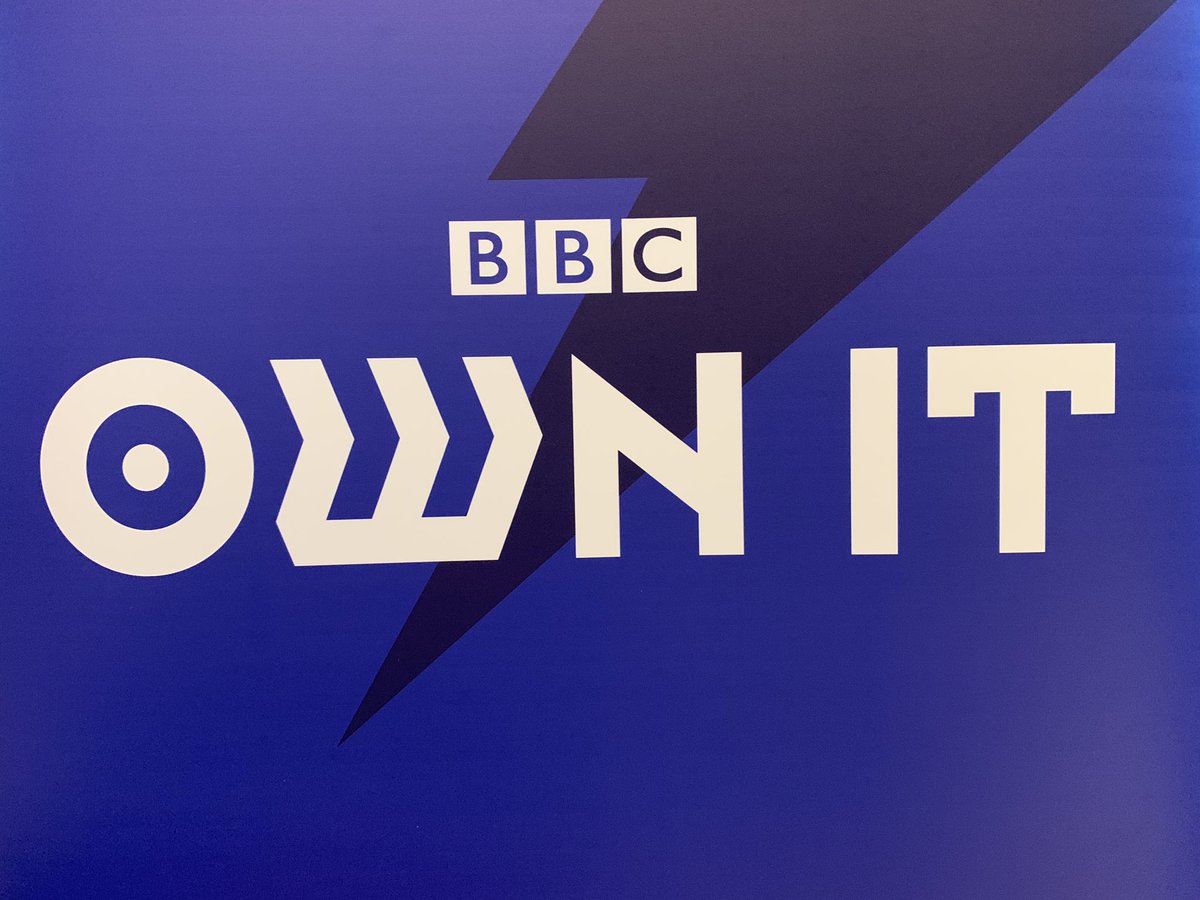

Another panellist says there is serious potential with these technologies - citing Ocado reducing food waste by 5% by using AI
Tina asks for examples of good practice. Sana says that government has created an online harms white paper, and a lot of tech companies have ethical codes. Says people are thinking about this, especially post Cambridge Analytica
Indra says that in health there is the duty of confidentiality, on top of that there’s GDPR so there is a lot of regulation.
They refer to notflawless.ai to see examples
Sana says the problem of diversity in tech is getting worse - we really need to fix this and we need to fix it together.
Sandra says some can be codes of conduct, some can be regulation
There are many wide-ranging uses - better distribution of blood supplies, managing the flow of traffic lights for faster ambulance journeys and so on
They say audiences want to be able to contribute now, and this enables their footage to be used by improving picture quality

















